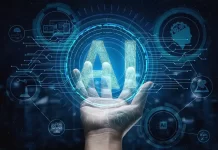It’s important to note that predicting which jobs will be taken away by AI technology in the future is not an exact science as it depends on various factors such as technological advancements, economic and social changes, and policy decisions. Here are ten jobs that are at higher risk of being replaced by AI technology in the future.
Here are the 10 Jobs that will be soon Taken over by AI Technology
Telemarketers
AI is already replacing some telemarketing jobs worldwide with the rise of chatbots and voice assistants. This trend is expected to continue in the future.Data entry clerks
AI-powered software is becoming increasingly proficient at automating data entry tasks and making these jobs increasingly at risk of being replaced soon.Customer service representatives
AI chatbots are already being used to handle customer service inquiries which could potentially reduce the need for human customer service representatives.Retail salespersons
As online shopping becomes more prevalent and automated checkout systems become more common in stores jobs are at risk of being automated.Cashiers
Many stores already use automated checkout systems which may reduce the need for human cashiers in the future.Bank tellers
The need for human bank tellers is expected to decrease as more banking transactions move online and ATMs become more sophisticated.Travel agents
Online travel booking sites and travel recommendation algorithms are making it easier for people to book trips without the assistance of a human travel agent.Bookkeepers
AI-powered software is increasingly able to automate bookkeeping tasks which could make human bookkeepers less in demand in the future.Receptionists
AI-powered chatbots and virtual assistants could potentially replace some human receptionist roles in the future.Assembly line workers
Advances in robotics and automation technology are making it increasingly possible to automate many assembly line tasks.
Conclusion
As AI technology continues to evolve the effect on workers including businesses and policymakers must be willing to adapt and evolve in order to ensure that the benefits of these new technologies are shared equitably.










